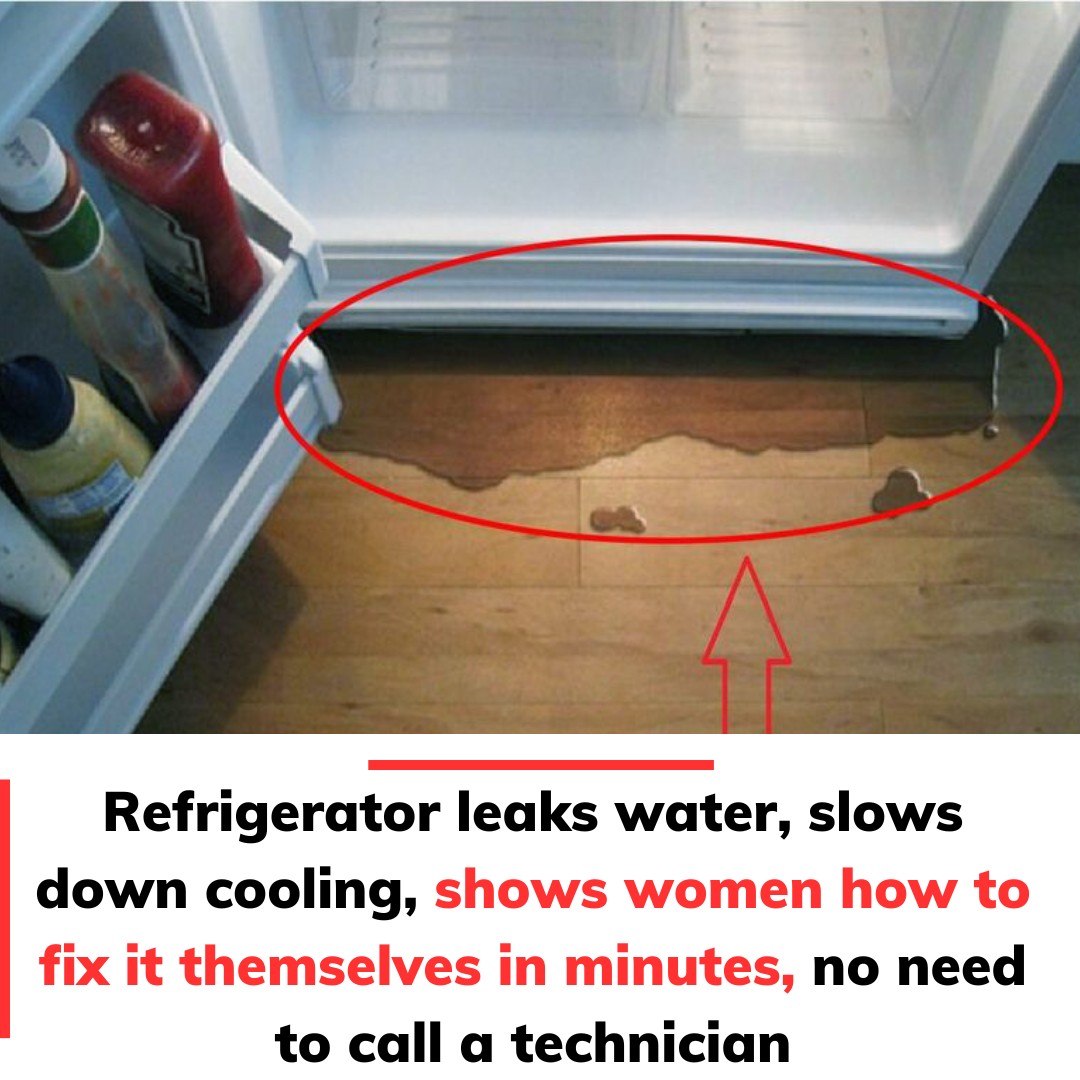Refrigerators are essential household appliances, keeping our food fresh and safe for extended periods. However, because they run continuously, they’re prone to occasional malfunctions. Two of the most common problems are water leakage and slow cooling. While these issues might seem serious, many of them can be resolved without immediately calling a technician. In this guide, we’ll walk you through the common causes and practical solutions.

1. Water Leaking from the Refrigerator Compartment
The Cause: Overstuffing and Wet Food
Many people stock up on groceries for the week, packing their refrigerator compartments to capacity. However, overloading the fridge can block the ventilation system, leading to poor airflow and slower cooling.
Additionally, placing freshly washed fruits, vegetables, or other wet food items directly into the refrigerator without draining them properly can cause water to collect and leak.
The Solution:
- Drain Wet Food: Always drain or pat dry food with a paper towel before placing it in the fridge.
- Use Proper Storage: Use plastic wrap or airtight zip-top bags to contain moisture.
- Organize Wisely: Arrange food neatly and avoid blocking ventilation vents.
- Avoid Overloading: Remove unnecessary items and ensure air can circulate freely.
These small steps will prevent water leakage and help your refrigerator cool more efficiently.
2. Water Leaking from the Freezer Compartment
The Cause: Blocked Vents or a Faulty Gasket
If you notice water leaking from the freezer, it could be due to overpacked food blocking the freezer’s ventilation holes. Proper airflow is essential for maintaining the low temperatures needed to keep food frozen.
Another common culprit is a worn-out refrigerator door gasket. Over time, the gasket (rubber seal) can degrade, preventing the freezer door from sealing tightly. This allows warm air to seep in, causing ice to melt and water to drip.
The Solution:
- Check the Vents: Make sure the freezer vents are clear of any food items.
- Inspect the Gasket: Check if the gasket is cracked, loose, or worn out. If it no longer seals properly, replace it immediately.
- Close the Door Properly: Ensure the freezer door is fully closed after each use.
- Organize the Freezer: Arrange items neatly to allow cold air to circulate effectively.
These adjustments can stop freezer leaks and maintain optimal cooling performance.
3. Water Leaking onto the Floor from the Water Tray
The Cause: Cracked Water Tray or Loose Water Supply Pipe
At the back of your refrigerator, there’s a water tray designed to collect condensation. Over time, this tray can crack, become misaligned, or overflow. Additionally, the water supply pipe (if your fridge has a water dispenser or ice maker) may become loose or even break.
The Solution:
- Unplug the Refrigerator: Safety first—always unplug the fridge before performing any maintenance.
- Check the Water Tray: Remove the tray and inspect it for cracks, holes, or damage. Replace it if needed.
- Inspect the Water Supply Pipe: Look for loose connections, cracks, or leaks. Tighten or replace the pipe if necessary.
- Clean the Tray: If the tray is dirty but not damaged, clean it thoroughly before placing it back.
If you can’t identify the issue or the leak persists, call a professional technician to prevent further damage.
4. Preventive Maintenance for a Leak-Free Refrigerator
Once your refrigerator is running smoothly again, regular maintenance can prevent these issues from recurring. Here’s how:
- Clean Regularly: Wipe down both the interior and exterior of the fridge with a clean, damp cloth.
- Remove Spoiled Food: Check weekly for expired or spoiled food and dispose of it.
- Inspect Seals and Gaskets: Periodically check the door seals for wear and tear.
- Don’t Overload Compartments: Keep food organized and avoid blocking ventilation.
- Check the Water Tray: Inspect the tray every few months for cracks or overflow.
Routine maintenance not only prevents leaks but also improves energy efficiency and ensures your refrigerator operates smoothly for years.
When to Call a Professional
While many refrigerator issues can be fixed with basic troubleshooting, some problems require professional help. Call a technician if:
- Water continues to leak despite your efforts.
- The refrigerator isn’t cooling properly even after clearing ventilation.
- You notice unusual noises or persistent error codes.
A professional technician will have the tools and expertise to diagnose and resolve more complex problems.
Final Thoughts
Water leakage and slow cooling are common refrigerator issues, but they don’t always require costly repairs. By understanding the root causes—whether it’s blocked vents, wet food, a worn-out gasket, or a cracked water tray—you can often resolve these problems yourself.
However, regular cleaning and proper food storage habits are key to preventing these issues in the first place. With a little care and attention, your refrigerator can continue to serve your household reliably for years to come.
So, the next time you notice a leak or poor cooling, don’t panic—start troubleshooting, and you might just save yourself a repair bill!





